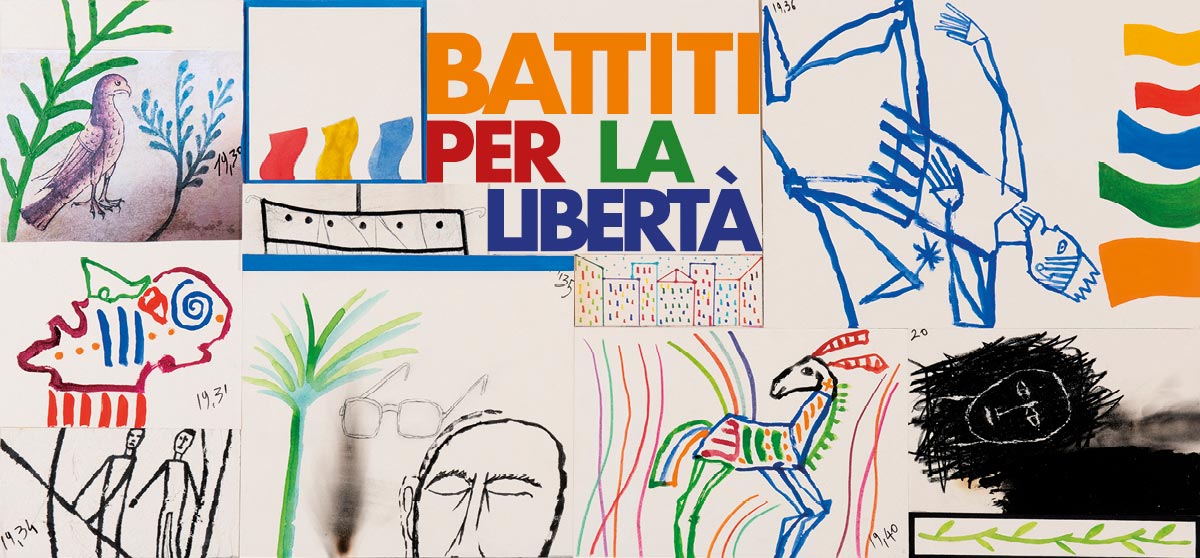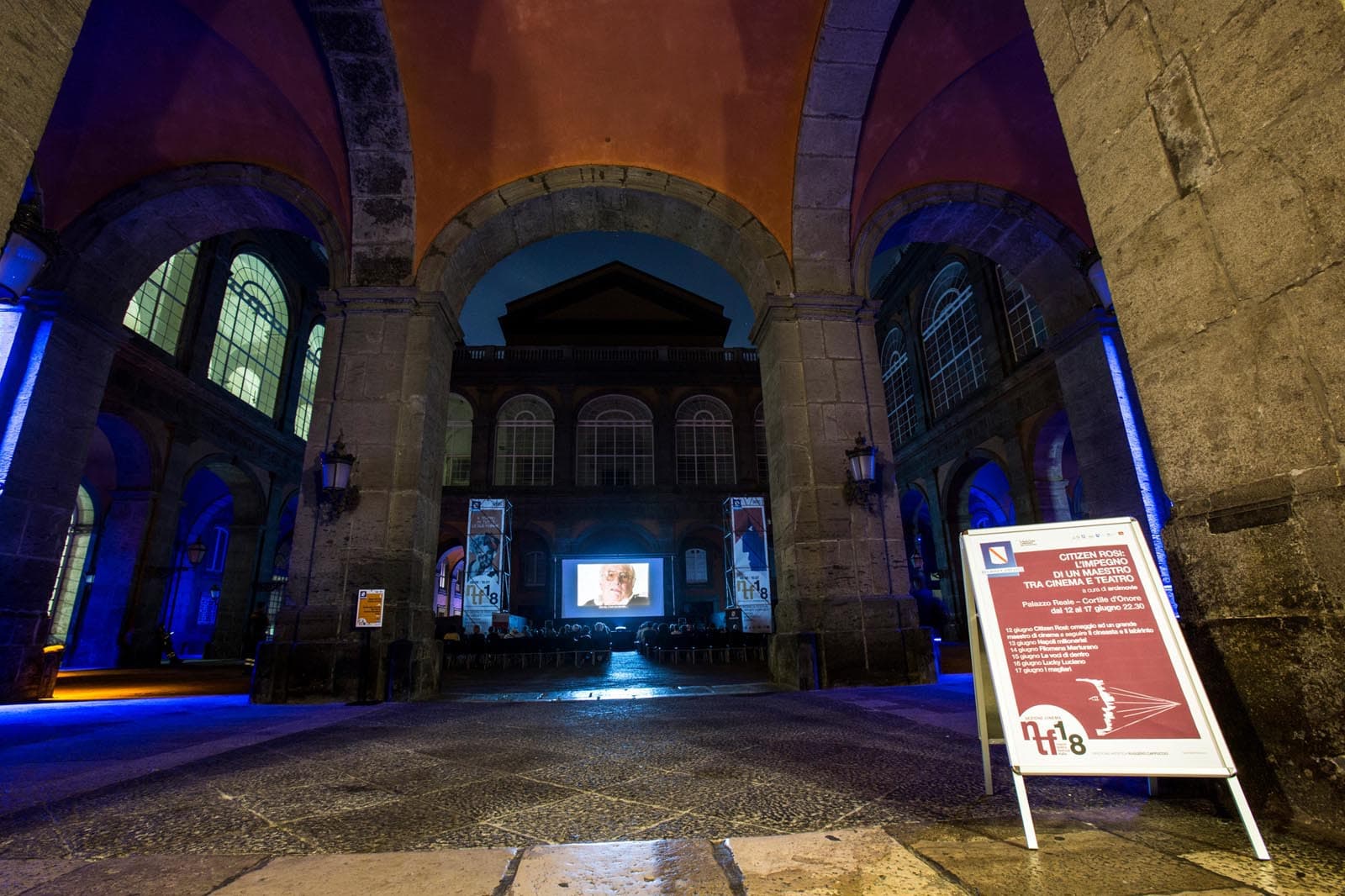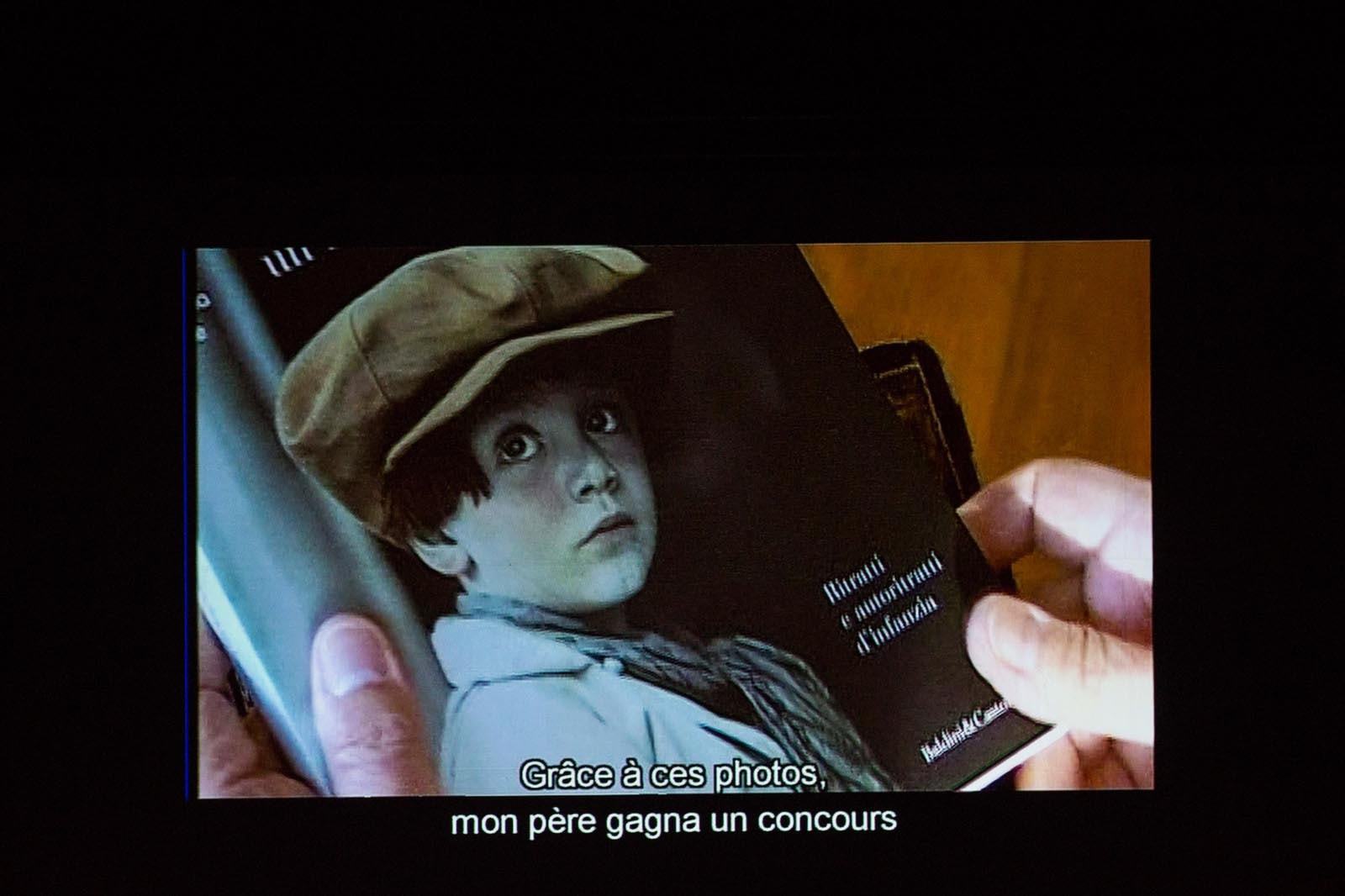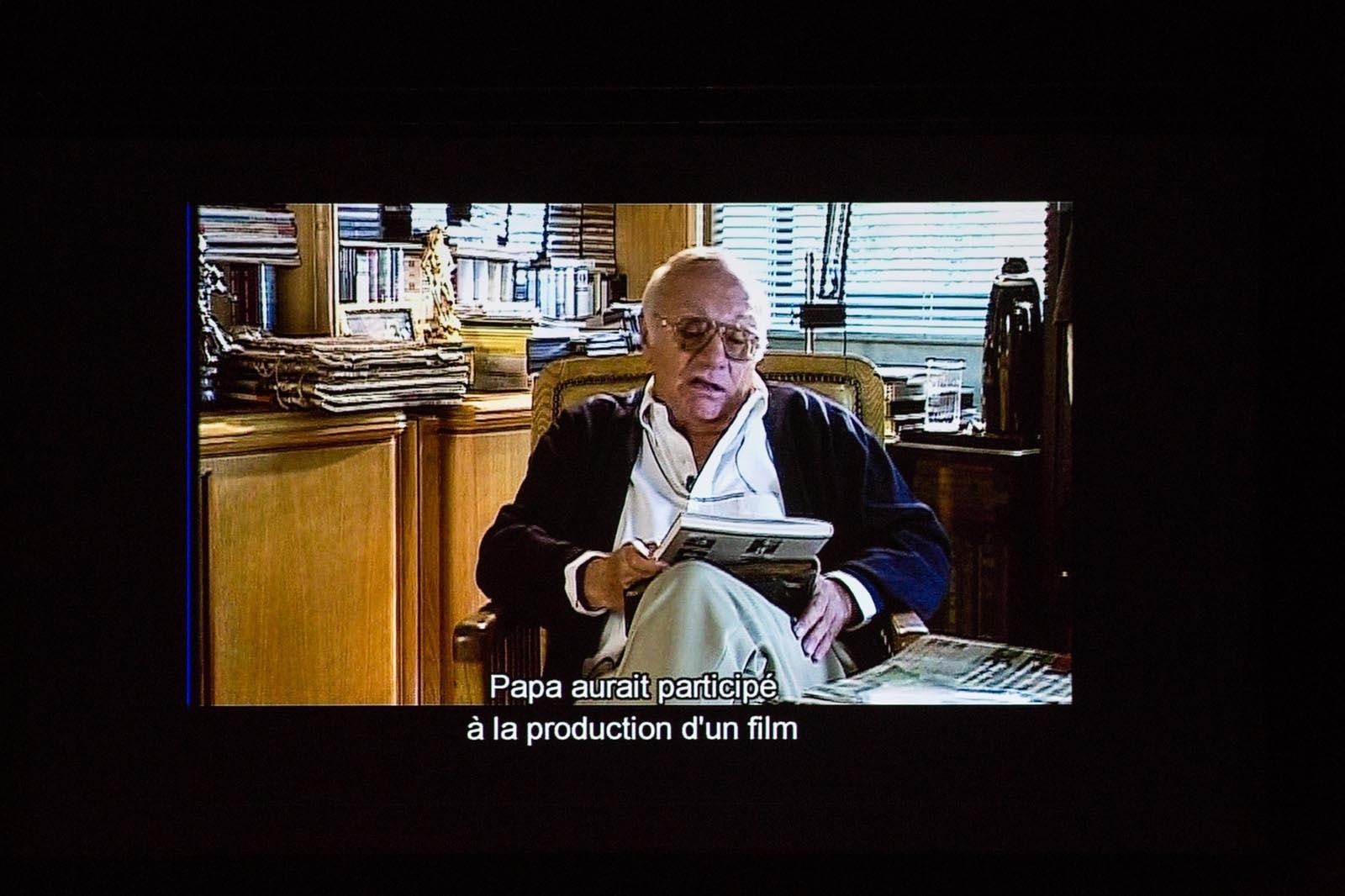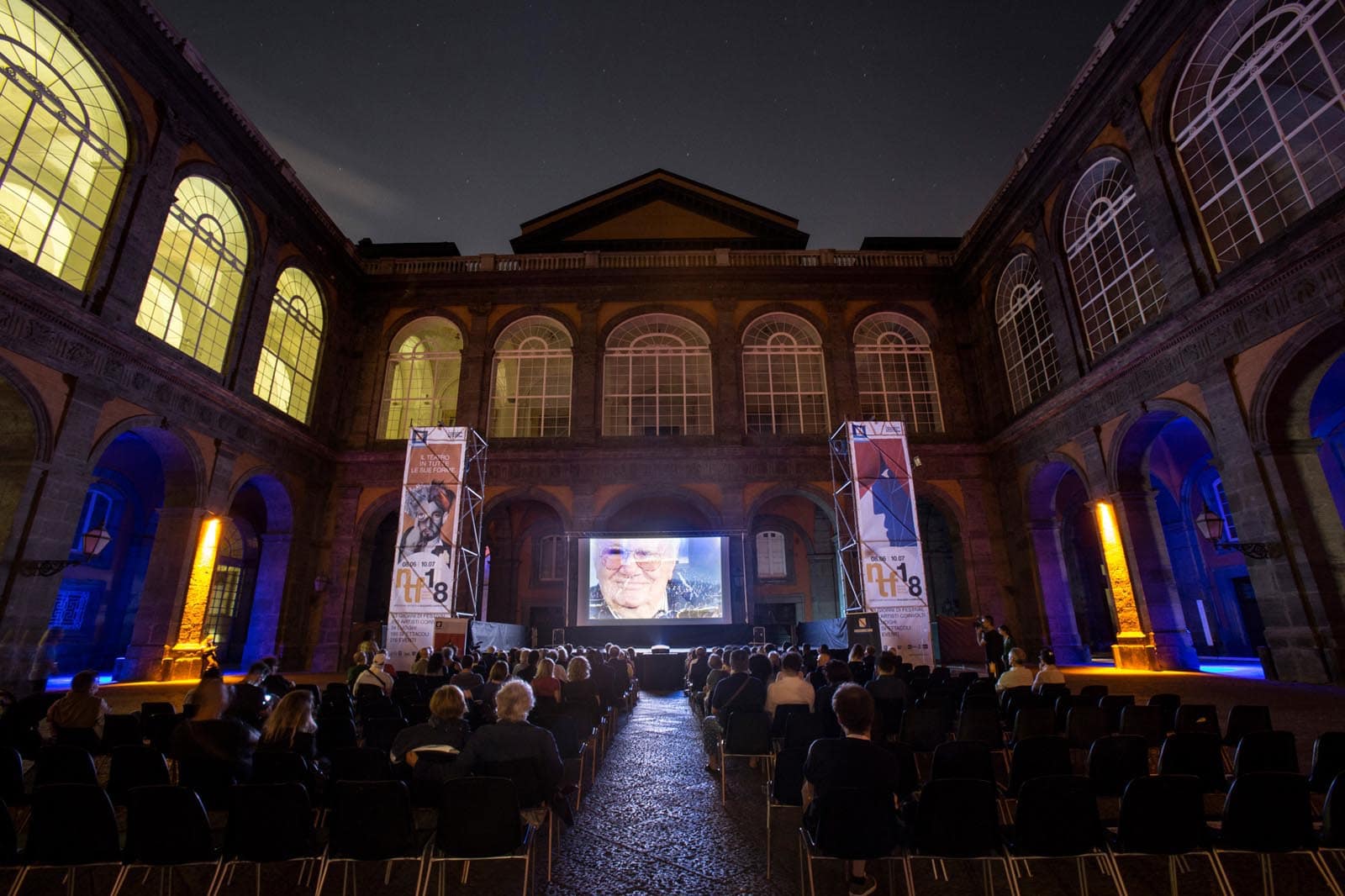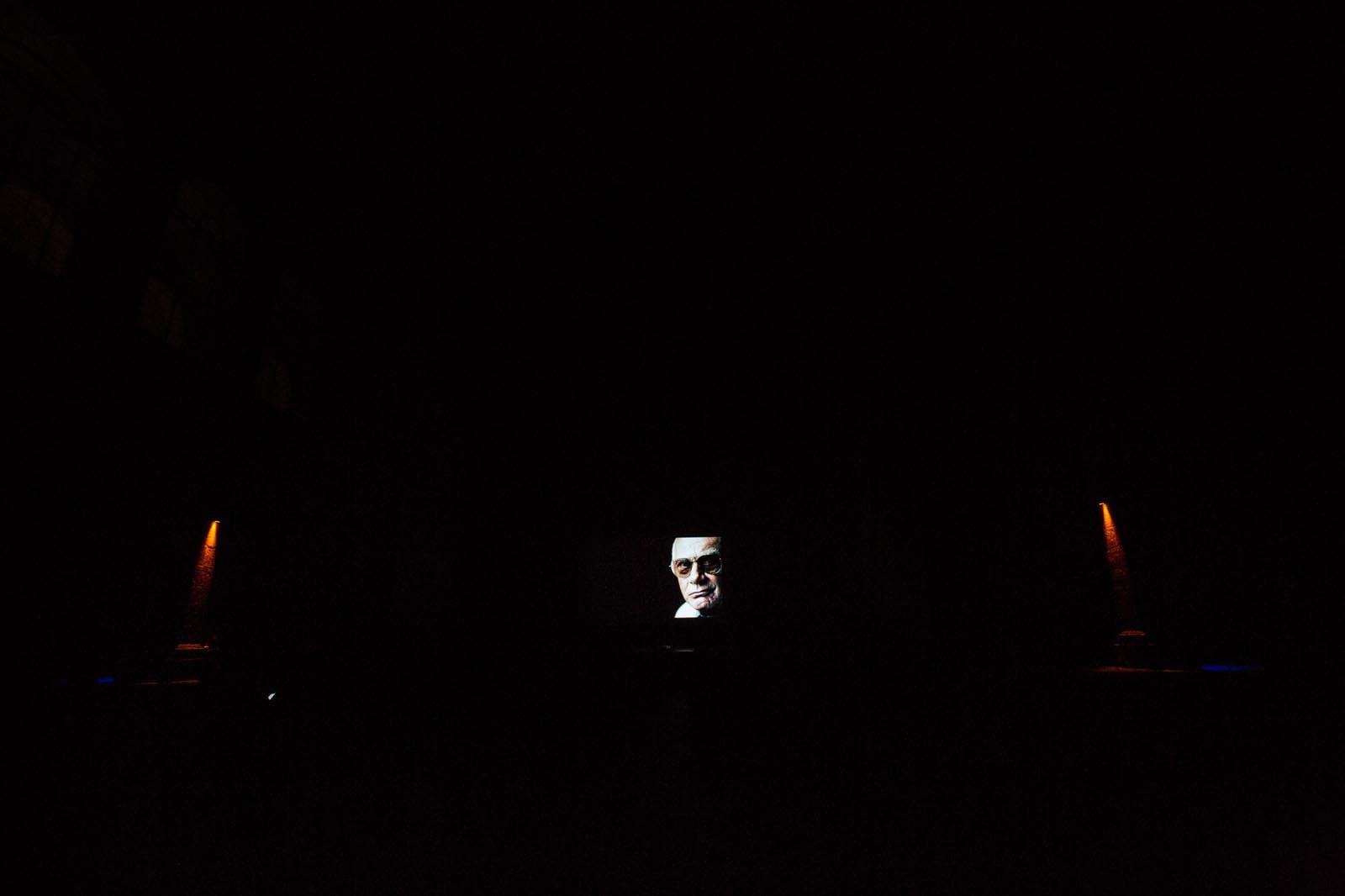Ph Salvatore Pastore
by Arci Movie
12 > 17 giugno 2018 h 22.30
Cortile d’onore di Palazzo Reale Napoli
Citizen Rosi: l’impegno di un maestro tra cinema e teatro
For this edition of NTFI the film section is supervised by Arci Movie, and a tribute to the work of director Francesco Rosi will be presented. After three years from his passing, the event aims at re-evoking the memory of the great director through a short, yet very dense selection of his works and his art. He was considered a true master of the image, one who contributed to this debate in a very original and decisive way. The section of works tell a story of artistic experience, a long and complex journey that marked the history and culture of it’s time, and nonetheless still is capable of reaching out to contemporary audiences: the artistic career of Rosi presents a specific aesthetics for each phase, and many different languages in audio-visual critique. His works present a civil (social) effort to narrate reality after the realist experience and viewpoint, bringing about a new and very individual form of documentary, and also shaping “his version” of the theatre by Eduardo. The collection of films will underline his original perspective and the nature of his art research, capable of switching from cinema and theatre registers very easily. A special thanks goes to the production and distribution house Titanus and to the National ‘Cineteca’ in Rome for providing the original footage and films.
Tuesday June 12 2018, h 22.30
Citizen Rosi: omaggio ad un grande maestro di cinema (Italia, 2015, 15’) by Giovanni Bellotti
Il cineasta e il labirinto (Italia, 2002, 55’) by Roberto Andò
Introduction: Carolina Rosi, Roberto Andò e Roberto D’Avascio
With Ruggero Cappuccio, Mariangela D’Abbraccio, Antonella Morea, Gigi Savoia, Massimo De Matteo, Marco Manchisi, Nicola Di Pinto e Giovanni Allocca
Wednesday June 13 2018, h 22.30
Napoli milionaria! (Italia, 2003, 149’), theatre direction Francesco Rosi
Introduction Roberto D’Avascio
Thursday June 14 2018, h 22.30
Filomena Marturano (Italia, 2008, 116’), theatre direction Francesco Rosi
Introduce Antonella Di Nocera
Friday June 15 2018, h 23.00
Le voci di dentro (Italia, 2006, 100’), theatre direction Francesco Rosi
Saturday June 16 2018, h 22.30
Lucky Luciano (Italia/Francia, 1973, 105’) by Francesco Rosi
Introduction Antonio Borrelli
Sunday June 17 2018, h 22.30
I magliari (Italia/Francia, 1959, 121’) by Francesco Rosi
Introduction Imma Colonna
Citizen Rosi: omaggio ad un grande maestro di cinema (Italy, 2015, 15’mins), video supervised by Giovanni Bellotti. In occasion of the passing of director Rosi, Arci Movie has produced a celebration film supervised by Giovanni Bellotti. This short-film gathers images and footage that are both private and never-before-seen, which were kindly donated by Carolina Rosi, daughter of the director.
Lucky Luciano (Italy/France, 1973, 105’mins) by Francesco Rosi.
The film Lucky Luciano tells the story of Salvatore Lucania, a.k.a. “Lucky Luciano”, the infamous boss of Italian-American organised crime from New York. Luciano is sentenced to 50 years in prison, but is granted pardon at the end of the second world war due to his services in the Marines. The agreement, however, is that he must leave the United States and ‘return’ to Italy. Once in Napoli, Luciano (played by Gianmaria Volonté) leads an apparently very normal life, but word on the street is that he still mingles with international drug dealings.
Napoli milionaria! (Italy, 2003, 149’mins) theatre direction by Francesco Rosi.
This world famous comedy by Eduardo De Filippo is set in 1942, and takes place in the “basso” (a ground-floor single room apartment) of the Jovine family. The father Gennaro is an honest man, maybe a bit naive, while his wife Amalia is pleasing and very active; they have three children. The Jovine family makes a living thanks to Amalia’s illegal smugglings. The story tells of a moral decay and social fracturing of a people that is still shaken from the horrors of the war.
Il cineasta e il labirinto (Italy, 2002, 55’mins) by Roberto Andò.
The career of Francesco Rosi is re-traced in a documentary film that tells of the most representative scenes of his films, along with the words of those who worked with him or that feel personally close to him and his cinema art. The film features interviews with Martin Scorsese, Giuseppe Tornatore as well as with the cinema critic Tullio Kezich.
Cristo si è fermato a Eboli (Italy/France, 1979, 150’mins) by Francesco Rosi.
Adapted from the novel by Carlo Levi, the film tells the story of the author (also painter, writer and doctor) that in 1935 was accused and charged for his anti-fascist ideology in Aliano, Lucania. A deserted landscape, a poor town where the Christ never managed to reach and bring his redemption. At first the protagonist Levi (played by Gianmaria Volonté) faces some difficulties, but then he encounters a series of other characters: the arch-priest, a man of good culture with a habit of drinking, the wealthy officer that made his fortune at the expenses of the town people, Giulia the maid, and the “podestà”, chief magistrate and supporter of Benito Mussolini.
Le voci di dentro (Italy, 2006, 100’mins), for the theatre direction of Francesco Rosi.
The direction of the film Le voci di dentro by Rosi (together with Luca De Filippo) continues – after Napoli milionaria! – along the lines and themes of Eduardo’s theatre and drama. Alberto Saporito has a recurring nightmare, or maybe it’s a vision: a murder committed by his neighbours, a family that he won’t hesitate to expose and denounce. The accused members of the family don’t come out and deny out loud the facts, but rather suspect and accuse each other. They end up excogitating a real homicide in order to cover up the “imagined” and presumed one.
I magliari (Italy/France, 1959, 121’mins) by Francesco Rosi. The film interpreted by Renato Salvatori and Alberto Sordi, deals with a group of immigrants from Napoli living in Germany. They try to establish a monopoly on fabrics. The weaving of the story, however, will lead them to contrasts with some Polish exiles, and with a rich German industrial entrepreneur. During the deals and contracting, a love story between a young worker and the beautiful wife of his employer develops from the plot.
Filomena Marturano (Italy, 2008, 116’mins) for the theatre direction of Francesco Rosi.
Filumena Marturano represents the last phase of the research journey set forth by Rosi and Luca De Filippo in this post-war (and typical of Eduardo’s style) drama. Written in 1946 for his sister Tina, this comedy immediately reached world-wide fame thanks to the extraordinary strength of the main protagonist, who struggles to be acknowledged and respected as a woman and a mother. The most memorable interpretations are by Regina Bianchi, Pupella Maggio, Valeria Morriconi, Isa Danieli and Lina Sastri.



